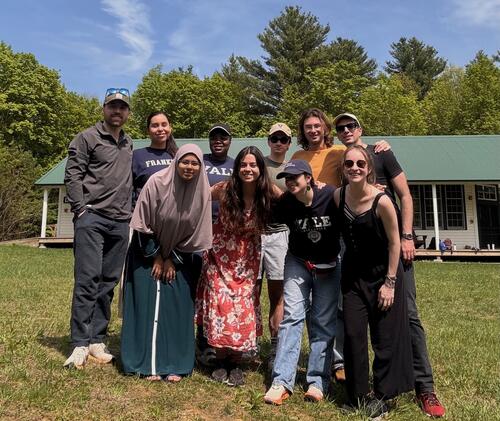
Last month, a group of twelve graduate students associated with Yale Environmental Humanities traveled from New Haven to northeastern Connecticut for an overnight retreat at Yale-Myers Forest. The trip was proposed by the Environmental Humanities Graduate Student Advisory Council last fall and
organized by Faculty Director Paul Sabin alongside two graduate students, Colton Klein and Henry Jacob. Building on the program’s recent Horse Island field trip, the retreat was designed to bring together interdisciplinary humanities scholars with research interests in the environment for two days of conversation, learning, and community-building through a mix of structured group activities and individual time for exploring in the forest.
Introduction to the Forest: A Walking Tour with Laura Green
After arriving at the forest, the group was welcomed by Laura Green, Research and Extension Forester at the Yale School of the Environment, who introduced students to the Yale-Myers Forest Camp and its world-class research lab.
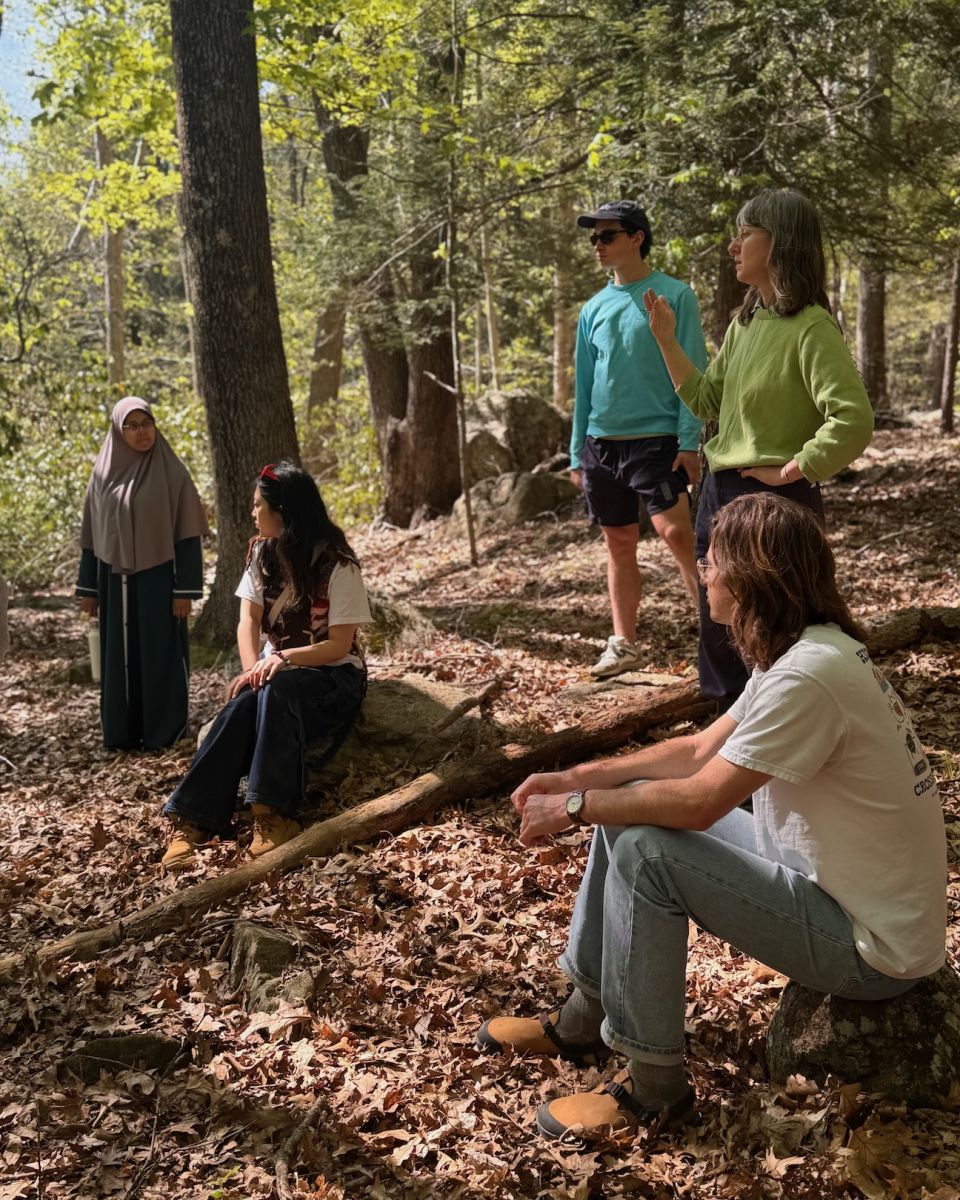
Later that afternoon, Green led a walking tour of the forest, which encompasses 7,840 acres of mixed hardwoods, small ponds, beaver meadows, and watercourses. Green provided a thorough overview of land-use history, forest stand dynamics, silviculture and oak regeneration, active research areas, timber sales and logging, and agroforestry in the form of forest farming and maple syrup production at Yale-Myers.
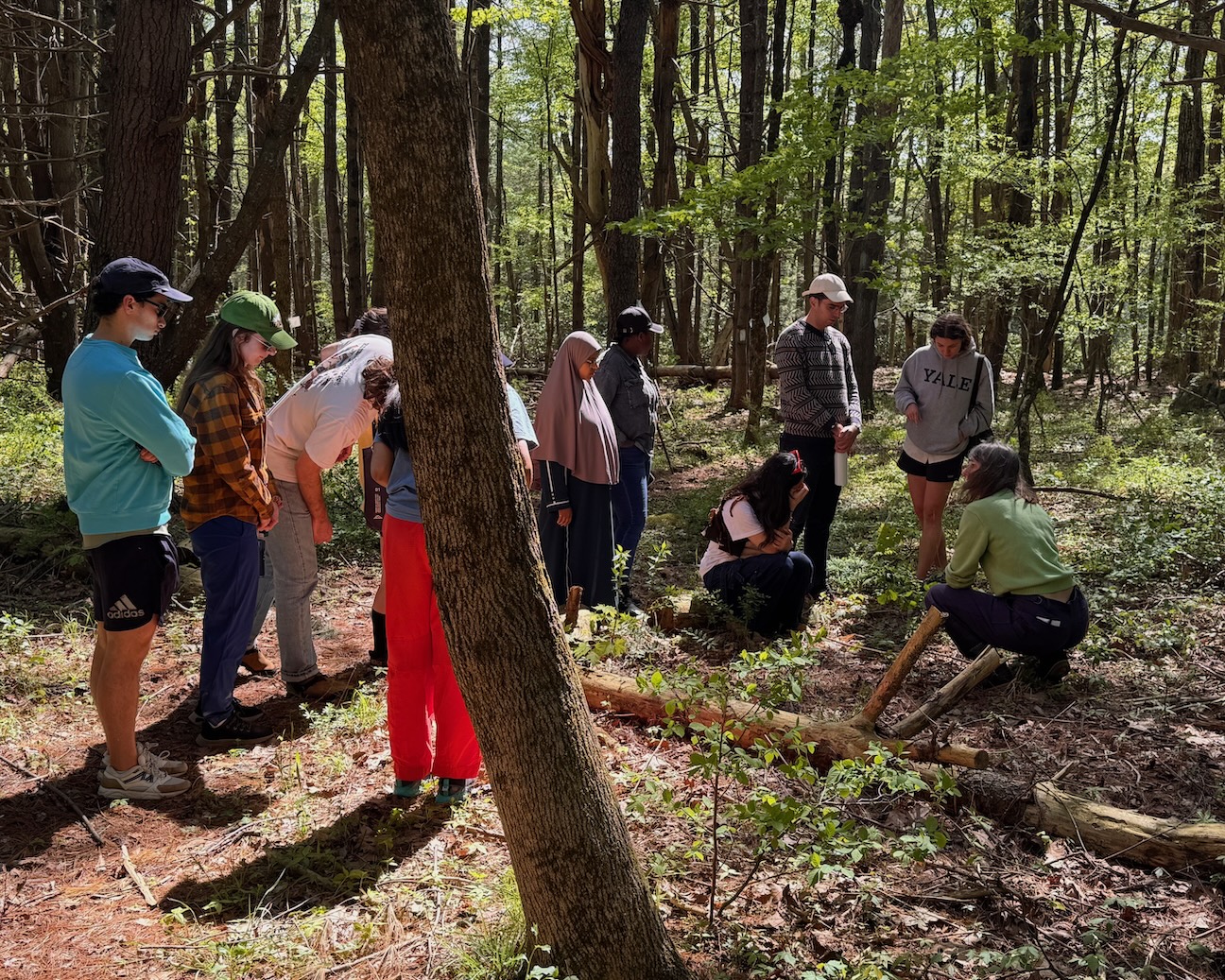
Campfire Conversations: Interdisciplinary Research Presentations
Following the tour, students had unstructured time to freely explore the forest’s hemlocks, pines, sugar maples, and birches, as well as its abundance of mountain laurel—the state flower of Connecticut. Over dinner and a campfire that evening, students shared informal lightning talks about their current research projects in their disciplines, which included History, Architecture and Environmental Design, History of Science and Medicine, Spanish and Portuguese, Earth and Planetary Sciences, and History of Art.
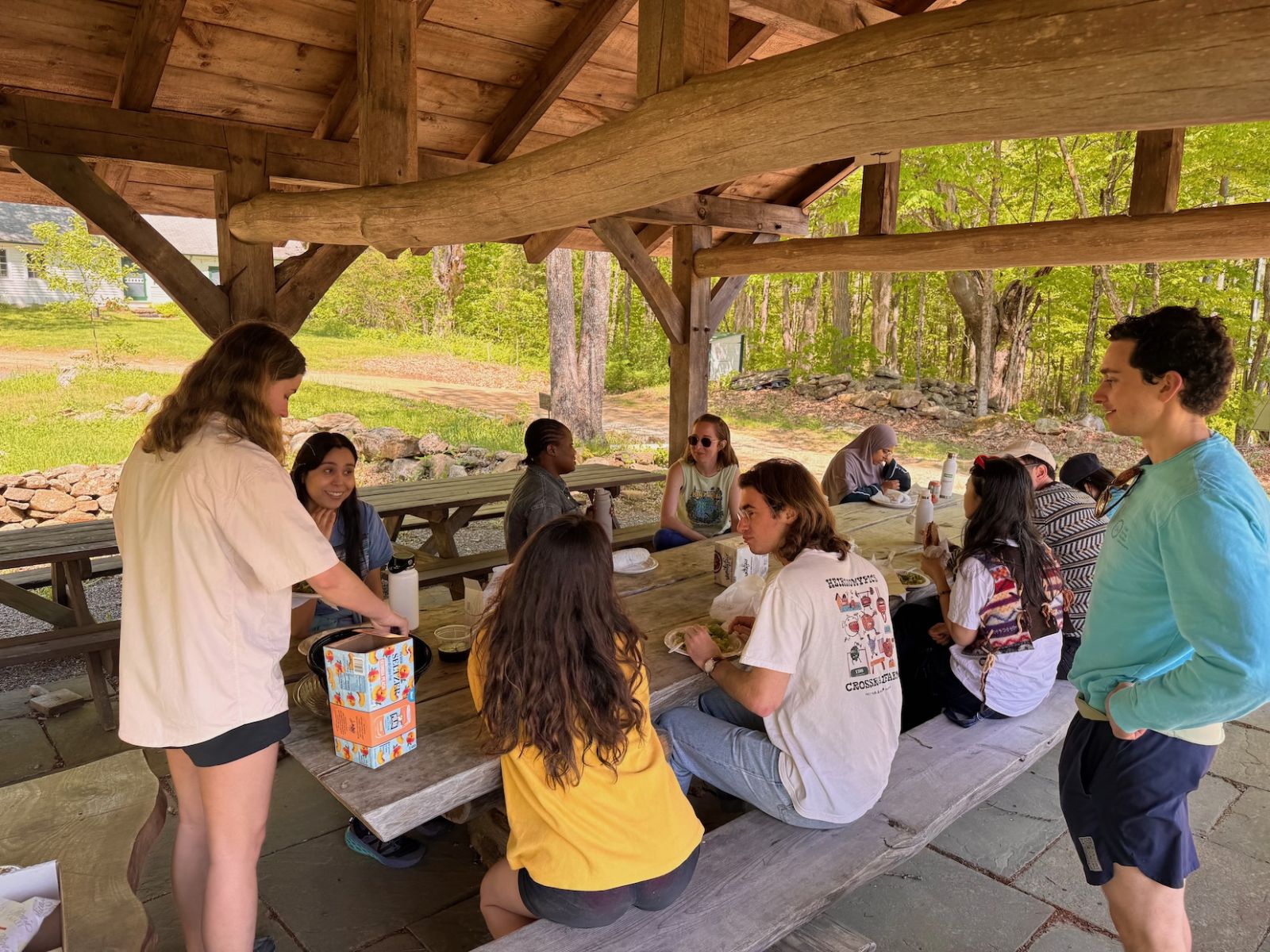
Each five-minute presentation was followed by a fifteen-minute Q&A and open discussion. The goal for these presentations was to gain feedback, insights, and perspectives from students outside their fields, and to practice sharing specialized research to interdisciplinary audiences in accessible ways.
Community-Building: Hiking, Swimming, Canoeing, and Group Activities
The next morning, the group gathered for a hike toward one of several nearby ponds historically associated with water-powered rural industries. At the pond, students had the opportunity to spend time swimming and canoeing in the water—a highlight of the trip for many.
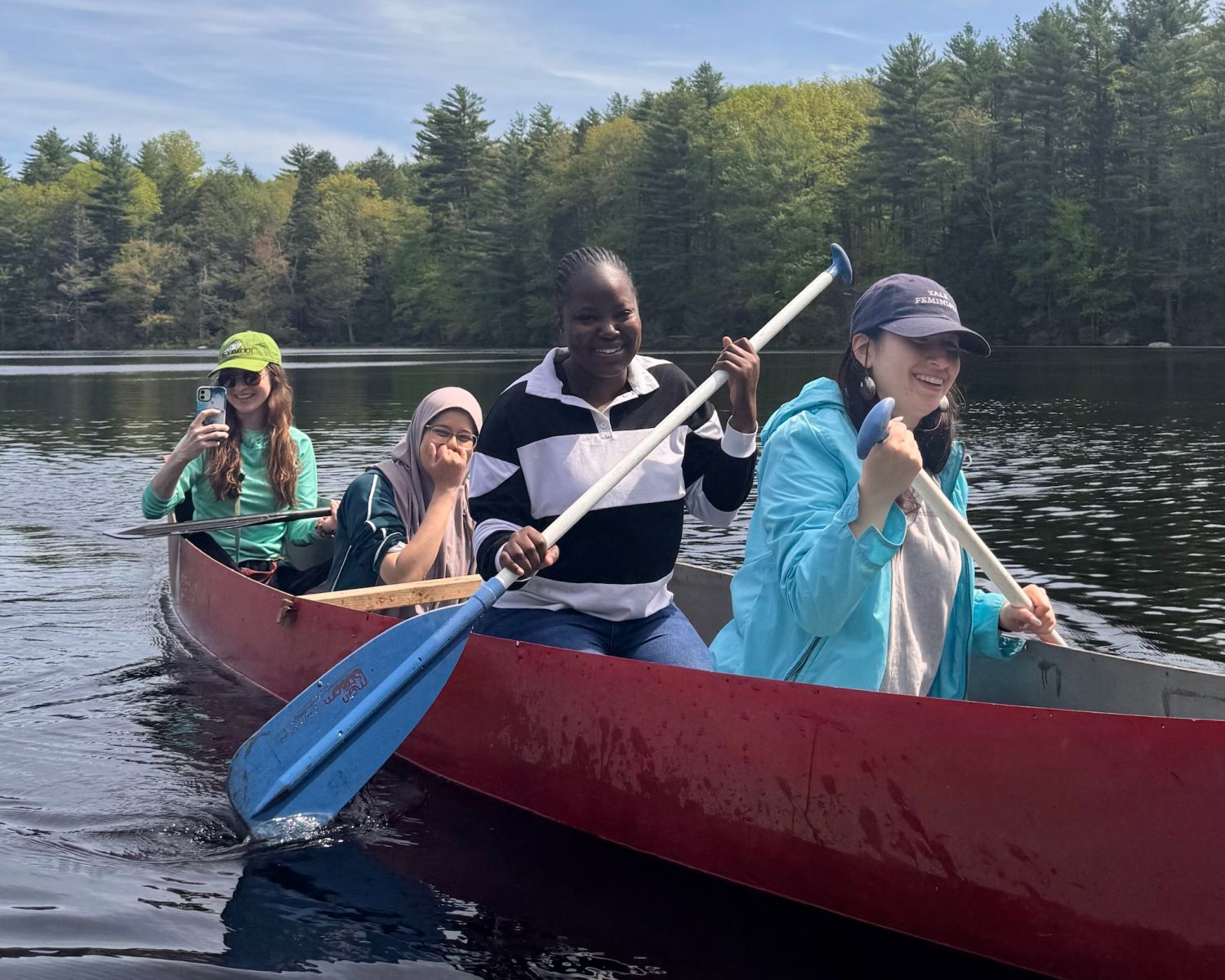
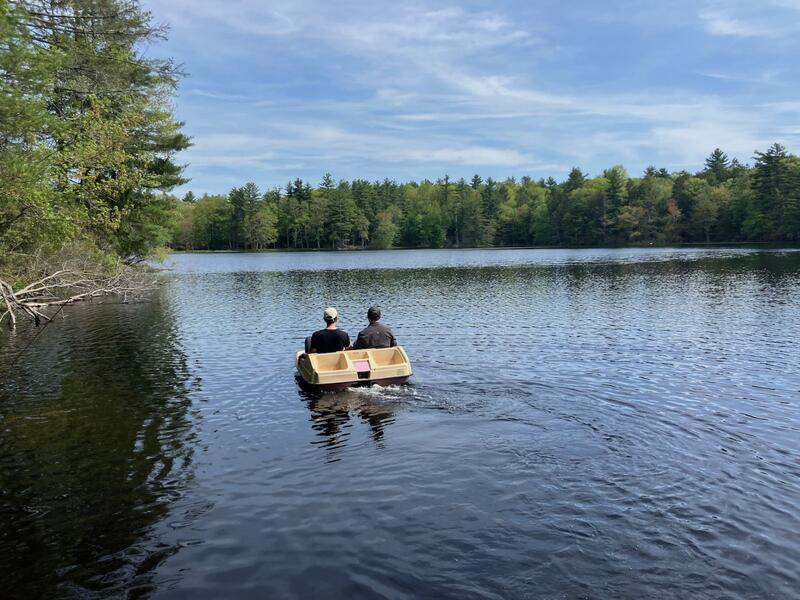
Overall, the retreat aimed to provide humanities scholars with exposure to science-based management practices, forest ecology, wildlife population dynamics, and land-use history while continuing to foster a robust community of interdisciplinary graduate students here at Yale.
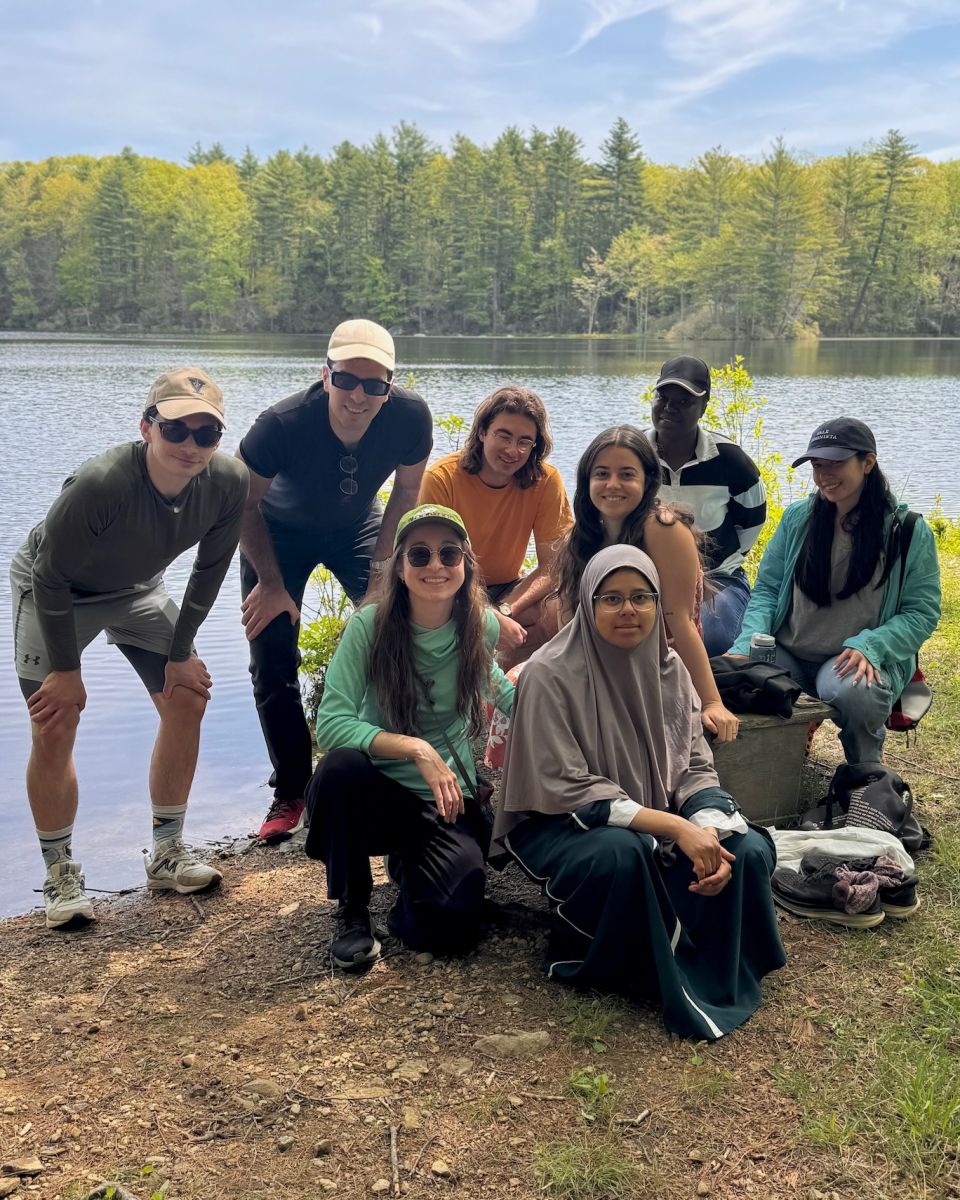
Yale Environmental Humanities gratefully acknowledges the financial support of the Yale School of the Environment, Yale School of Architecture, Yale Center for Race, Indigeneity, and Transnational Migration, Whitney Humanities Center, and The Edward J. and Dorothy Clarke Kempf Memorial Fund.